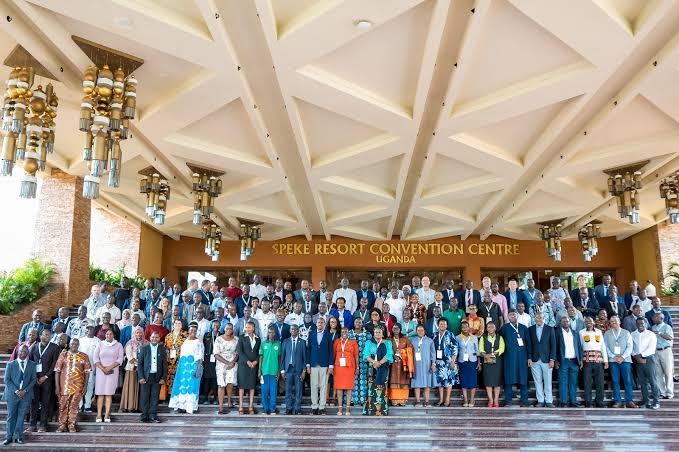
KAMPALA – Hundreds of agricultural experts from 20 African countries have gathered in Uganda to discuss climate smart ways of improving potato yields to avert food insecurity on the continent.
Frank Tumwebaze, the minister for agriculture, animal industry and fisheries said during the opening the summit was aimed at advancing food security, agricultural innovation, and economic integration.
“This conference comes at a time when the world is urgently seeking climate-resilient, nutritious, and economically viable crops to ensure food and income security,” the minister said.
“In this regard, the potato and sweetpotato are more than just crops, they are strategic assets in Africa’s agricultural transformation agenda,” Tumwebaze added.
Uganda is one of Africa’s leading sweetpotato growing countries, producing about 1.8 million metric tons of sweetpotato annually, according to the minister.
The minister also called for value addition to the potatoes to meet the changing dietary demands brought about by continental urbanisation.
He emphasized the need for research so as to produce high yields.
“Uganda has released several high-yielding and disease-resistant varieties tailored for different agro-ecological zones. These include varieties that mature faster, are more drought-tolerant, and meet quality standards required by the processing industry,” he said.
The conference is running under the theme, “Fostering Climate-Smart Cropping Systems for Sustainable Potato and Sweetpotato Value Chains.”
According to the Food and Agricultural Organisation, a UN agency focused on addressing hunger and improving food security, 58.0 percent of the population in Africa was moderately or severely food insecure in 2023 while 21.6 percent faced severe food insecurity.
Yergalem Taages Beraki, FAO country representative in Uganda said they were committed to improving seed quality, enhancing farmer training, and promoting climate-smart and nutrition-sensitive practices.
“Across Africa, potatoes and sweet potatoes have demonstrated tremendous potential to improve household food security, generate incomes, and provide climate-resilient alternatives to other staple crops,” Beraki said.
“FAO is proud to work hand in hand with governments, researchers, and farmers to enhance seed systems, scale up agroecological solutions, and strengthen inclusive value chains – ensuring that no one is left behind,” he added.